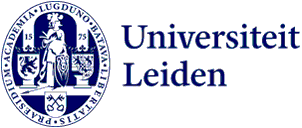
PhD candidates exchange experiences at small-scale summer school
Excursions to Leiden museums, a flown-in American professor and a collaboration with PhD students from Cambridge: Leiden PhD candidates in early modern art were in luck this summer. An award from the Camino Fund allowed the LUCAS research institute to organise a special summer school for them around the concept of 'style'.
'Style is a central concept in art history,' explains lead organiser Professor Stijn Bussels. 'It is traditionally used for identification: by which artist was the work made, in which period was it made, is it genuine or not? We wanted to link it to contemporary interests. So not so much: how can we date an object, but how can we learn more about the period in which the art was created based on the style choices made?'
In this way, style becomes a tool in a more culture-historical interpretation of works. 'Art and power are an obvious example of this,' says Bussels. 'Art can refer to earlier great rulers, such as powerful emperors in the Roman period. The style in which this is done then suddenly says something about living heritage and historical ideals.' But style can also say something about cultural differences. Bussels: 'What happens when the form characteristics of, say, Chinese porcelain suddenly appear in another culture, as was the case in seventeenth-century Holland?'
Individual and informal
The participating doctoral students were able to discuss such questions with their counterparts from Cambridge. 'In the morning they were able to present their research individually and in the afternoon we went on a field trip,' says Bussels. 'Because there were only five of us, it was very intensive. So we prepared everything really well to get the most out of it, but I think just being able to exchange experiences is very valuable. We teachers also withdrew after a while, so that the PhD candidates could talk to each other in an informal atmosphere.
Thanks to Camino Fund
This personalised approach was made possible by the Camino Laurent van Vugt Fund. 'Our research school also organises a lot of activities, but then it always has to be of national interest,' Bussels explained. 'With the award from this fund, we were able to focus much more on the individual research.'
And that's not the only advantage art history PhD students have. Because the grant is for five years, the LUCAS research institute is in a position to organise more frequent events for them in the near future. 'Next year there will be a larger summer school,' he says. 'There the emphasis will be less on the individual, but instead we will have international experts speaking on topics of interest to PhD candidates. That way we can offer a lot of variety.'
